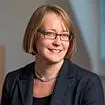The 9/11 Commission Report starts: "Tuesday 11 September 2001 dawned temperate and nearly cloudless in the eastern United States." And it was just like that. As I stepped out of my hotel on 34th Street, things were looking good – I had arrived the day before, in time to prepare for the UN General Assembly Special Session (UNGASS), the so-called 'Children's Summit'.
I was working for Save the Children, one of many international NGOs that were attending the UNGASS to lobby the world's governments. The Summit was due to debate progress on implementing the UN Convention on the Rights of the Child. My role was to coordinate the launch of a report into children's lives around the world; it was a devastating read of failed promises from those governments and of children not being afforded their basic rights.
As the sun shone, I peered up at the clear blue sky and allowed myself a smile in anticipation of a busy but interesting day. What I didn't do though, was look down towards Lower Manhattan. Had I done so I would have seen the smoke already billowing from the North Tower of the World Trade Centre. The world had changed.
By the time I reached our office just by the UN building on 42nd I realised that something was up. The emergency sirens had been a wailing soundtrack to my walk. My two colleagues were glued to the television. They and the world now knew that this was no accident. The other tower had been hit.
We walked out onto the street. New Yorkers and tourists alike were crowded around shop windows or doorways watching TV or listening to the radio. This was before smartphones, so there was no live streaming on a mobile phone.
As we joined the back of a crowd the TV footage showed the second tower being hit. The footage was being played on a loop.
The crowd was very quiet. Occasionally there were a few unanswered questions or reassurances like "the firemen will get them out." Had the towers stayed standing, then they might have had a chance.
For the rest of that day we de-camped to one of my colleague's apartments. Sitting in an office next to the UN building didn't seem like a sensible idea. We watched the footage of the planes hitting and the towers falling again and again and again. We were addicted to the coverage.
Land lines were down, my mobile phone just wasn't working. We eventually did manage to send some emails back to family and the London office to say we were safe.
The apartment was on level 8 of a tower. We could look down at the streets and watch the fire trucks and ambulances speed past. At one point we saw the weird and alarming sight of emergency workers in hazmat suits clearing the street and surrounding a vehicle. That was the first of many alarming incidents over the next three days. Driven by fear, the whole city was on edge: "How else could they attack us?"
The low point for me was an evacuation of my hotel in the middle of the night. A motley crew of hastily dressed hotel guests, we were thrown out onto the street and told to walk north, away from what would become known as Ground Zero. "Don't stop, keep going!", the police officers kept shouting. So we walked up 5th Avenue. Eventually, we started to slow. Just as we did a huge dust cloud swept up the avenue, engulfing us. We darted into shop doorways and telephone booths. It passed very quickly. The dust washed off quite easily, but the smell will live with me forever.
There were no flights in or out or around the US. I eventually got a train to Toronto. And an emotional flight back to Heathrow.
The UNGASS Children's Summit did finally go ahead in May 2002. But the events of that one sunny day in September 2001 ensured that the fight for children's rights became ever more essential but also more challenging. Divisions and conflict in the world never accommodate children and the last 20 years have seen millions of children continue to miss out on the health, education and security that they are legally entitled to.
The content of this article is intended to provide a general guide to the subject matter. Specialist advice should be sought about your specific circumstances.
